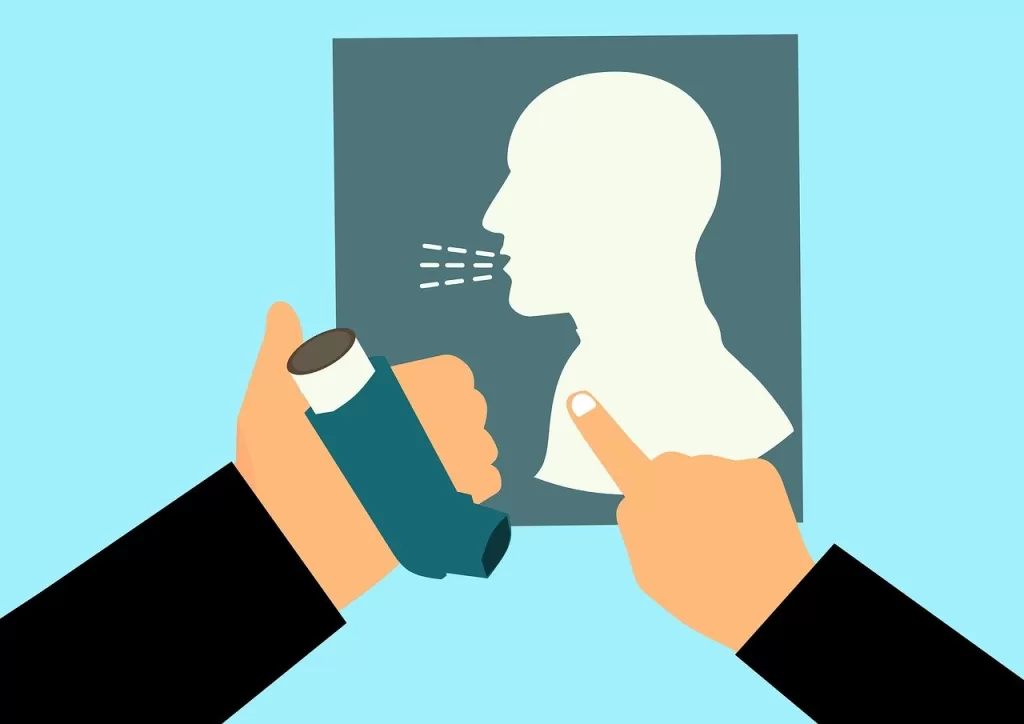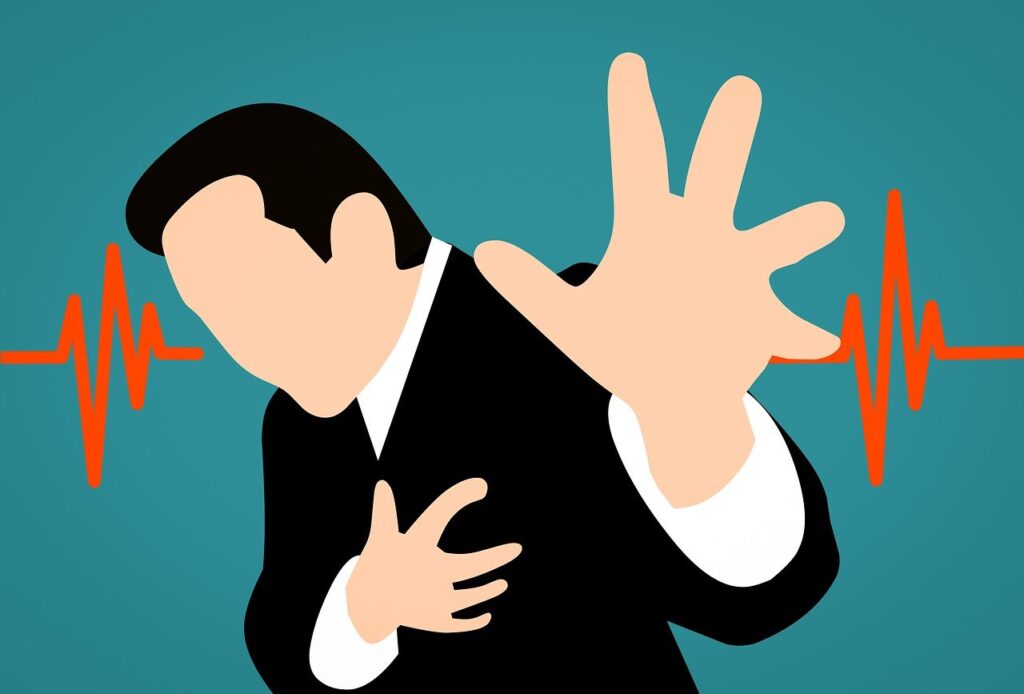Asthma chest pain associated can be serious. If you are experiencing this kind of chest pain, you may have various clueless questions and concerns. Let me explore for you the different aspects of asthma chest pain, including its triggers, symptoms, and all the available treatments.
Chest Pain and Asthma Correlation
Asthma is a chronic respiratory condition that affects your airways, leading to symptoms like wheezing, shortness of breath, and chest tightness. I can also define it as a chronic inflammatory disorder of your airways that results in variable airflow bronchial obstruction, which is potentially reversible with appropriate medical therapies. It manifests itself in you by you having difficulty in breathing, coughing, and wheezing. Occasionally, you may experience chest pain.
Causes of Chest Pain in Asthma
While chest pain is not a classic asthma symptom, it can occur due to several factors related to the condition:
- Muscle Strain: Frequent coughing and labored breathing can strain the chest muscles, leading to localized pain, i.e. sternum pain.
- Inflammation: The inflammation of your airways can sometimes extend to your chest, hence causing discomfort.
- Acid Reflux: Gastroesophageal reflux disease (GERD) is common in individuals with asthma and can lead to heartburn and chest pain.
- Anxiety and stress: Anxiety-related chest pain can exacerbate asthma symptoms and create a cycle of discomfort.
Symptoms of Chest Pain in Asthma
Chest pain in asthma can manifest in you in various ways, including:
- A Sharp or Stabbing Pain: If affected, you may experience sharp, stabbing pain in your chest.
- A Dull Ache: You may also experience a dull, persistent ache in the chest.
- A Burning Sensation: Your chest pain can also be accompanied by a burning sensation.
- Chest/lung tightness: You may experience feelings of tightness in the chest, which can be part of the overall chest pain experience.
- Localized right/left-hand or center chest pain: The pain can occur on your right side, left side, or in the center of the chest.
How to Distinguish Chest Pain in Asthma from Other Conditions
Chest pain in asthma can be mistaken for other serious conditions, such as heart-related complications such as angina. You need to consider the following factors to differentiate them:
- Special Asthma Symptoms: You need to evaluate whether other typical asthma symptoms like wheezing and shortness of breath accompany the chest pain.
- Duration: Your asthma chest pain often comes and goes, while cardiac-related pain can be persistent.
- Relief: Asthma-related chest pain may ease with the use of inhalers or bronchodilators, while cardiac chest pain may not.
Treatment and Management of Asthma Chest Pain
- Medication: Depending on the underlying cause, your healthcare provider may recommend medication to manage chest pain, such as bronchodilators or antacids for GERD-related pain.
- Muscle Relaxation Techniques: Practices like deep breathing and progressive muscle relaxation can help you alleviate chest pain related to muscle strain.
- Stress Management: You need to address anxiety and stress in you, which can reduce the frequency and intensity of your chest pain.
- Dietary Adjustments: You should try to avoid trigger foods and eat smaller, more frequent meals. This can help you manage GERD-related chest pain.
- Regular Monitoring: It’s equally important for you to monitor your asthma and chest pain symptoms, keeping track of any changes or patterns.
When to Seek Medical Attention
If you experience severe, persistent, or sudden chest pain, or if you have risk factors for heart disease, seek immediate medical attention. Do not hesitate to contact your healthcare provider if you have concerns about your chest pain or asthma symptoms.
Can Asthma kill you?
While asthma is generally a manageable and treatable chronic respiratory condition, in some cases, it can become severe and lead to life-threatening complications. Asthma attacks can be serious and, in rare instances, fatal. However, with proper management and timely medical intervention, the vast majority of individuals with asthma can lead normal, healthy lives.
Asthma-related fatalities often result from severe asthma attacks that do not respond well to treatment or from delayed access to medical care. It’s crucial for individuals with asthma to work closely with their healthcare providers to develop an effective asthma management plan, which may include the use of medications (such as bronchodilators and anti-inflammatory drugs), avoidance of triggers, and monitoring of symptoms.
Certain factors can increase the risk of severe asthma attacks and complications, including:
- Poorly Controlled Asthma: Inadequate management of asthma symptoms, including inconsistent use of prescribed medications.
- Delay in Seeking Medical Care: Waiting too long before seeking medical attention during an asthma attack can increase the risk of severe outcomes.
- Underlying Health Conditions: Concurrent health issues, such as respiratory infections, can exacerbate asthma symptoms.
- Lack of Asthma Education: Insufficient understanding of asthma and its management may contribute to inadequate self-care.
- Exposure to Asthma Triggers: Continued exposure to allergens or irritants that trigger asthma symptoms can lead to exacerbations.
It’s important for individuals with asthma to:
- Adhere to their prescribed treatment plan: Take medications as directed by their healthcare provider, including preventive medications and quick-relief inhalers.
- Monitor symptoms: Be vigilant about changes in asthma symptoms and seek prompt medical attention if symptoms worsen.
- Understand and avoid triggers: Identify and minimize exposure to asthma triggers, such as allergens or irritants.
Can Asthma be Cured?
asthma is considered a chronic condition, meaning there’s no known cure that universally eradicates it completely. However, with proper management and treatment, many individuals with asthma can effectively control their symptoms, minimize the frequency and severity of attacks, and lead normal lives.
Asthma management primarily focuses on:
- Medications: There are two main types of medications used in asthma treatment:
- Quick-relief medications: These provide immediate relief during an asthma attack (bronchodilators like albuterol).
- Long-term control medications: These are taken regularly to prevent symptoms and manage inflammation in the airways (inhaled corticosteroids, long-acting beta-agonists, leukotriene modifiers, etc.).
- Avoiding Triggers: Identifying and avoiding triggers like allergens (pollen, dust mites, pet dander), irritants (smoke, strong odors), and other factors that worsen asthma symptoms.
- Developing an Asthma Action Plan: Creating a personalized plan with a healthcare provider that includes steps to manage symptoms, use medications, and know when to seek emergency care.
Kindly Note That!
Asthma chest pain is a multifaceted issue, and its causes and symptoms can vary from person to person. While it is often associated with muscle strain, inflammation, or GERD, it is essential to consult with your healthcare professional to pinpoint the exact cause and develop a tailored treatment plan for you. By Understanding the relationship between asthma and asthma chest pain, you stand a chance for effective management and improved quality of life if you are living with this chronic condition.
Discover www.medicalantidote.com for a range of health articles.


